The question “How do I naturally strengthen my plants so that they are not susceptible to pests?” has been put to me repeatedly, so I am happy to address it. Natural plant tonics made from wild herbs increase the resistance of plants, provide them with important nutrients and repel pests. Yesterday I went for a walk and saw that my three favorite ingredients for slurry, which I love to work with, have already grown well. Perhaps you will find the herbs in the garden or on a walk or excursion or in the Volkspark. So, dear organic balcony gardeners, strengthen the resistance of your plants!
Preparation forms of the plant strengthening agents
- Cold water extractsoak chopped plant parts in water for 24 hours (up to 3 days), sieve
- Brothlike cold water extract, then boil and simmer for 15 — 30 min, then sieve
- TeaBrew chopped plant parts with hot water, allow to cool, sieve
- Slurrychopped plant parts, ferment with water in a container (no metal) for at least 10 days, stir daily until it stops foaming, stone meal can be sprinkled in to prevent odors
I prefer to use these wild herbs in a mixture:
Stinging nettle
Stinging nettle is the ideal plant for strengthening plants, as it is an excellent fertilizer and repels pests. It proves its worth in Cultivation in a balcony box.
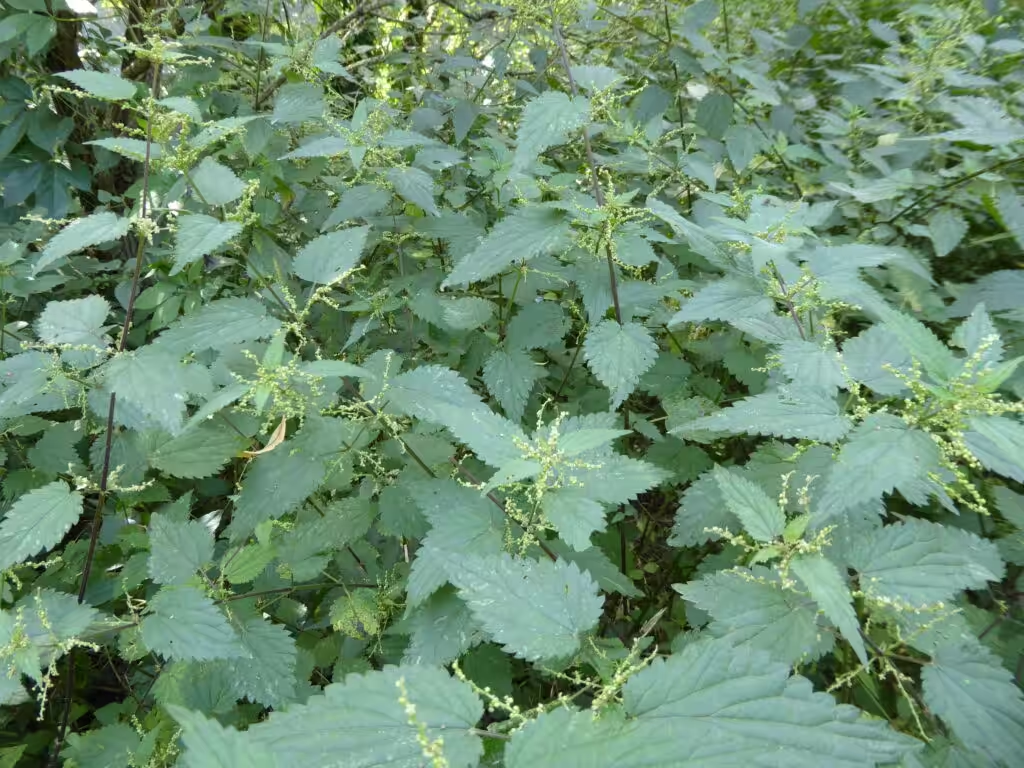
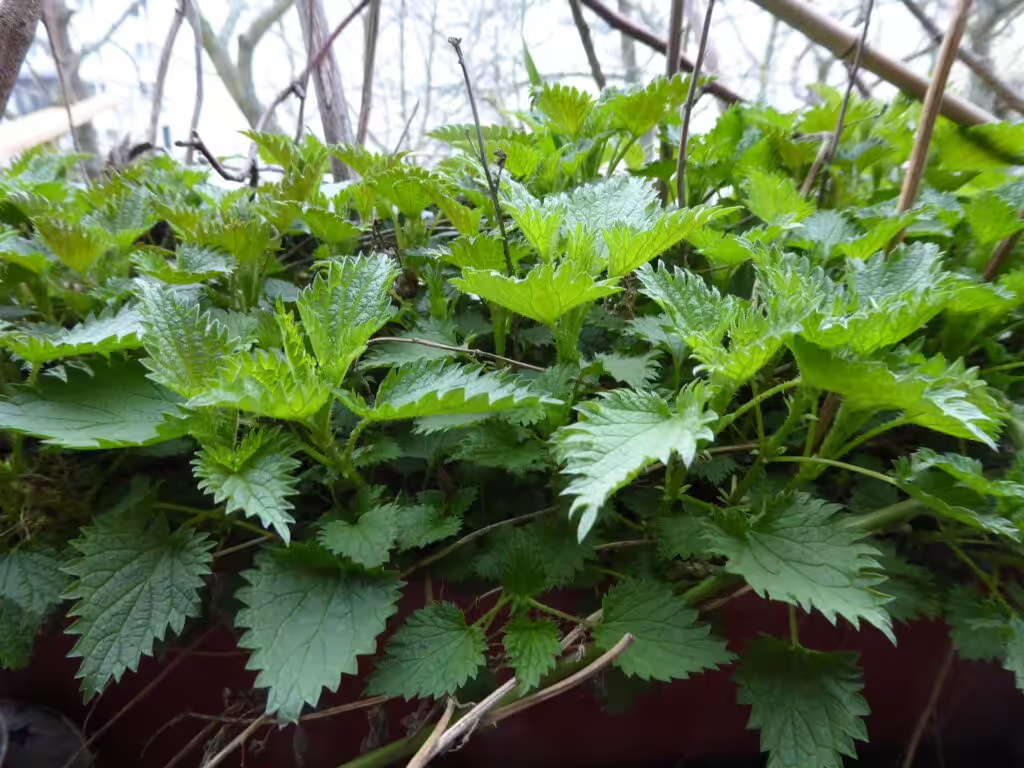
Tansy
Tansy has an excellent effect against pests due to its many tannins. An insider tip.
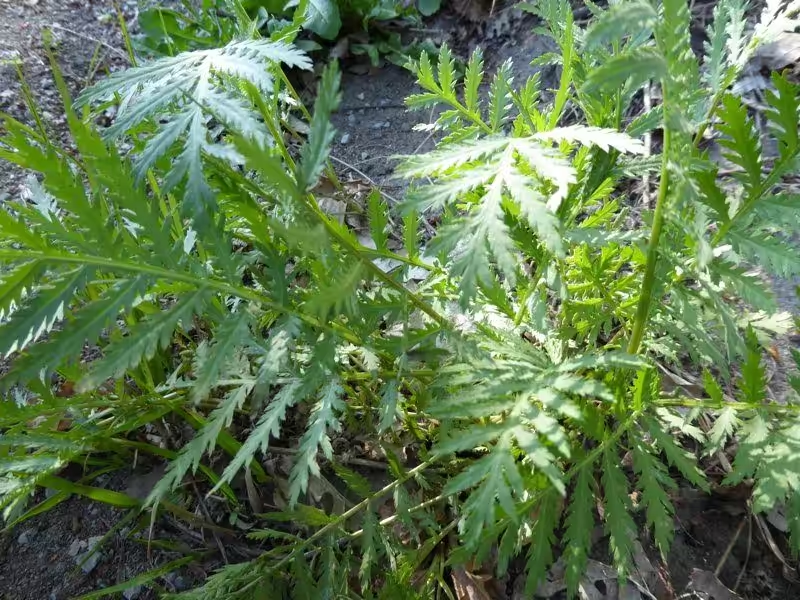

Field horsetail
Horsetail helps prevent fungal diseases as it contains up to 15 % silicic acid.
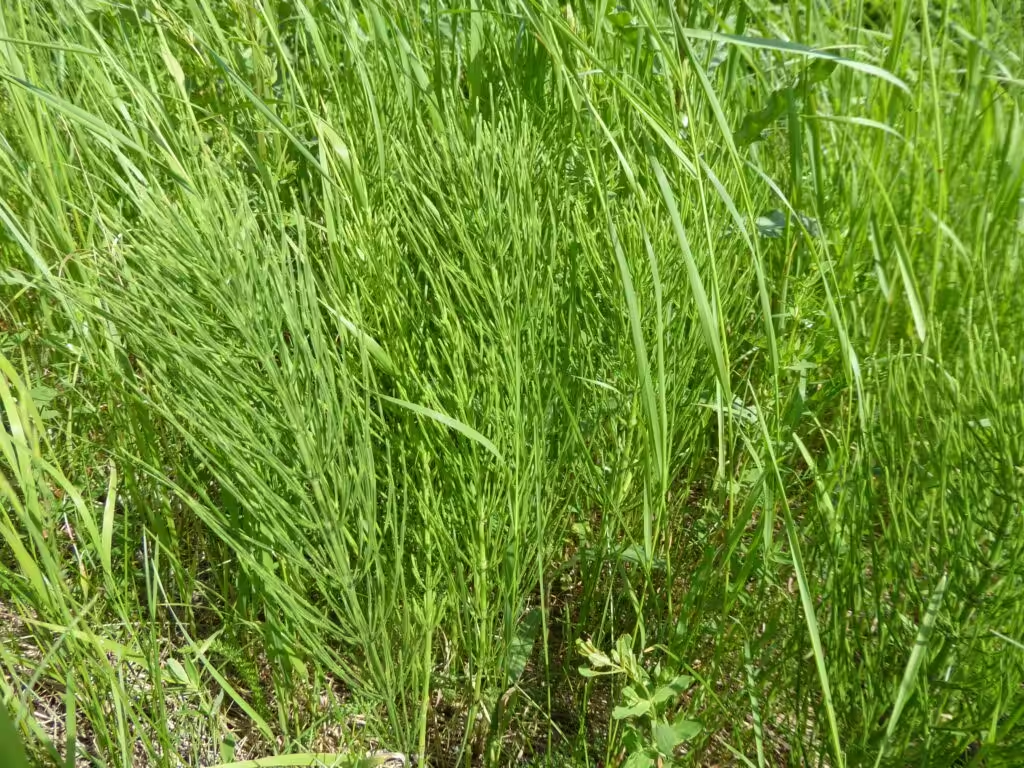
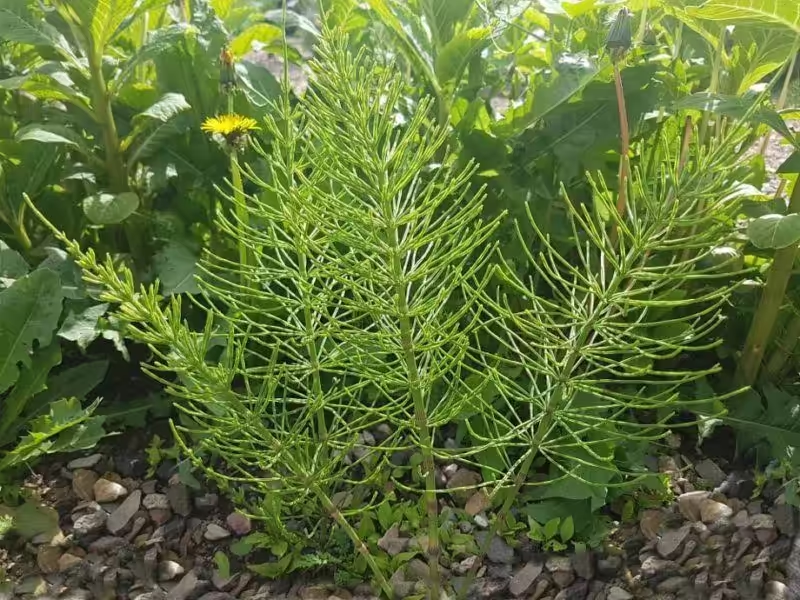
When I find a large stock of these plants on an excursion, I have already dried them. I then use them later to make another slurry.

I still had three large bottles of herb manure left over from last year, which I used to strengthen my plants on the organic balcony and I’m confident going into the season that there won’t be any serious problems with pests this year either.

Set your Liquids, extracts, broths or teas according to your personal preferences. Try it out. Especially with liquid manure, unpleasant odors can arise that range from a very village-like smell to a very strong smell of liquid manure. You can reduce this by Primary rock flour which also improves the soil. Avoid over-fertilizing, as this weakens resistance. Pay attention to the concentration, so dilute accordingly. Use the popular nettle liquid manure every four to six weeks for weak eaters and every one to two weeks for heavy eaters such as tomatoes. I water with the smelly liquid manure on days with bad weather and at a time of day when I suspect the neighbors are not using their balconies.
You can find very detailed information on the page Toxic-free gardening from the Grüne Liga e.V. Read up on the quantities and other wild plants that can be used.
Finished Plant strengthening agent
A finished Plant strengthening agents for the Organic farming is Biplantolwhich has been tried and tested for decades. This homeopathic remedy in different variations strengthens the plants by stimulating the growth of roots and microorganisms. The plants absorb the nutrients more easily and therefore grow better.
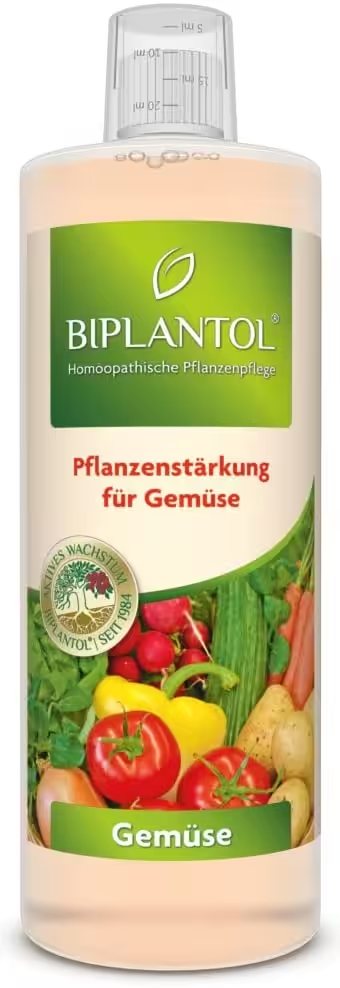
Buy finished products from Snoek Naturprodukte
Due to reports in the magazine “Natürlich leben und anders gärtnern” (Living naturally and gardening differently) Kurt Schlicker from the company Snoek natural productsa small manufacturer in northern Germany, contacted me. He spoke really well and in detail at the 4th Online Organic Balcony Congress about plant strengthening and fertilization. We also hosted a webinar where many, many questions were asked about organic fertilization, plant strengthening and pest control. Here you can watch this Listen to the webinar and get to know Kurt Schlicker.
Pay attention to the right location for your plants
Unfortunately, it happens time and again that plants are attacked by pests. This is usually caused by less than optimal growing conditions, which make the plants susceptible. Pay attention to the suitable location for your plants. The right location depends on the plant’s region of origin. The culinary herbs rosemary, thyme, sage and oregano need at least a western, preferably a southern exposure. Parsley, lovage, chives and basil belong on the east or even north side, as they do not like direct sunlight. They prefer partial shade and often even thrive in the shade. Our herb expert Burkhard Bohne says: “As long as you water optimally, choose the right location and the roots have enough space, the herbs are so stable that there is no threat of pests.






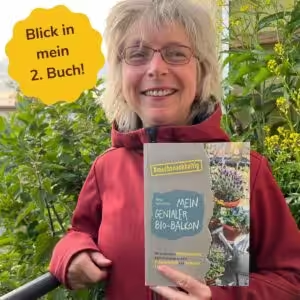


13 Responses
Dear Birgit, thank you, a very important topic!
My biggest problem for years has been ants. Not on the balcony, but in the raised beds in the garden.
I just can’t find an antidote that really helps to contain the masses of pests. Nothing against a few, but in my raised beds they have such an upper hand that I can only work undisturbed in cool and damp weather without the ants biting. Unfortunately, they also often lay their lice camps on the plants.
I have tried countless remedies such as baking soda, homeopathy, relocation attempts etc., nothing helps.
Perhaps someone here has found a successful remedy?
Have you tried cinnamon powder? Spread it around the ant holes. This upsets the ants’ orientation. They don’t like the smell of cinnamon. This will make the ants feel uncomfortable and they may move.
Try lavender: 1/2 liter of rainwater with 5 drops of lavender oil and 1 drop of dishwashing liquid. Spray every week.
Yes, I have also tried cinnamon.
Lavender: I had previously only planted it in the middle of the beds and scattered some of the leaves in the ant corners. I didn’t know the variant with lavender oil and washing-up liquid — I’ll give it a try. Thank you!
Thanks for the tip with the cinnamon powder and lavender oil. I also have a spot and will give it a try…
I put the vegetable waste for smoothies with wild herbs and water in the blender and use it to water my plants in the house, garden and balcony, diluted but unsifted. My plants are doing great and the little creatures are busy digesting and producing wonderful soil.
Thank you for this very valuable and easy-to-use tip, dear Anne.
I have had good success with coffee grounds.
I can recommend EM against ants.
Because ants come when there are not enough effective microorganisms in the soil. Just like snails. These animals convert what there is too much of, but which the plants cannot yet absorb.
Which makes me wonder: Don’t the ants mind digging around? Apparently not.
So water more often in the rain with diluted EM and work it in.
Do not apply unripe compost. There is probably too much nutrient in the soil that is not yet available to plants. The ants will then do the turning. They have no reason to move, especially if there is always rotting material in the beds.
Best regards,
REinhild
Thanks for the tip about EM! I’ll give it a try.
Ants are radiation seekers, which means that where there is a bad place in the earth for us, there are ants.
If the bed is in such a place, the ants must also be there. The only thing that helps is to move the bed and let the ants work there.
They are also bird food for young birds.
http://www.pro-omnia.at/index.php?option=com_content&view=article&id=46&Itemid=25
Dear Mary Magdalene! Thank you for this valuable contribution. A very important tip.
Thank you very much for this detailed article.
Unfortunately, this is always a big problem for us too, which hopefully can be solved with this 🙂
Best regards
Birgit
Dear Birgit! I think there will be an improvement. These are tried and tested natural remedies that have been used by many gardeners for years with great success. Good luck, get well and have fun. Kind regards Birgit